
Tristania is a monotypic genus of flowering plants native to New South Wales, Australia, closely related to Thaleropia. The genus had a number of species, but some have been reclassified as Lophostemon and Tristaniopsis. The sole species currently in the genus is Tristania neriifolia. It is known commonly as the water gum.

Kielmeyera is a plant genus in the family Calophyllaceae. It is endemic to South America, with a large occurrence in the Brazilian cerrados.
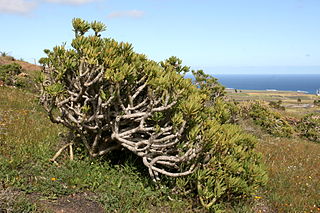
Kleinia neriifolia, known in Spanish as verode or berode, is a species of flowering plant in the daisy family (Asteraceae). It is endemic to the Canary Islands. It was formerly named Senecio kleinia.

Acacia neriifolia, also known as the oleander wattle, silver wattle or pechy wattle, is a tree in the genus Acacia native to north eastern Australia. It is common in the Moonbi Ranges.
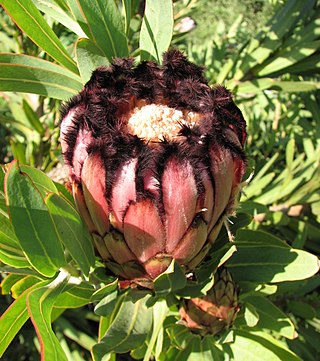
Protea neriifolia, also known as the narrow-leaf sugarbush, oleander-leaved sugarbush, blue sugarbush, or the oleanderleaf protea, is a flowering plant in the genus Protea, which is endemic to South Africa.
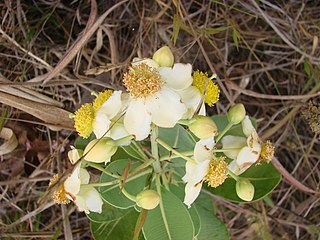
Kielmeyera coriacea is a medicinal plant native to Cerrado and Pantanal vegetation in Brazil. It is also used as a honey plant.
Kielmeyera peruviana is a species of flowering plant in the Calophyllaceae family. It is found only in Peru.

Peruvoside is a cardiac glycoside for heart failure.
Cerberiopsis neriifolia is a species of plant in the family Apocynaceae. It is endemic to New Caledonia.
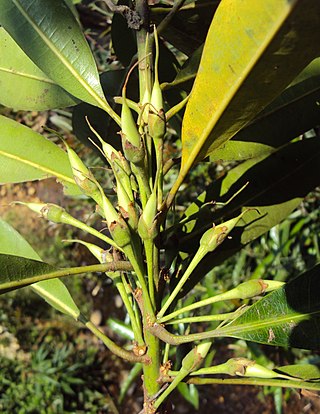
Madhuca neriifolia is a species of plant in the family Sapotaceae. It is native to Sri Lanka and India's Western Ghats.

Thevetia is a genus of flowering plants in the family Apocynaceae, first described for modern science as a genus in 1758. It is native to Mexico, Central America, South America, and Cuba. The taxonomy of the genus is controversial, with some authors including Cascabela within Thevetia, while others accept the two genera as separate.

Canararctia is a monotypic tiger moth genus in the family Erebidae erected by Vladimir Viktorovitch Dubatolov in 1990. Its only species, Canararctia rufescens, was first described by Gaspard Auguste Brullé in 1836. It is endemic to La Gomera and Tenerife in the Canary Islands.

Ficus neriifolia is a species of fig (Ficus). It is native to Asia, including Bhutan, Burma, China, India, and Nepal.
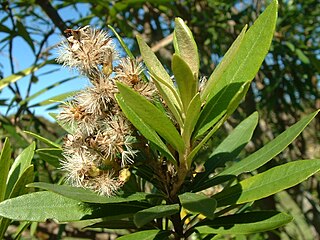
Brachylaena neriifolia, commonly known as the Cape silver oak, water white alder or waterwitels, is a small tree which is native to river valleys in southern Africa.

Kielmeyera neglecta is a species of Kielmeyera from Brazil.
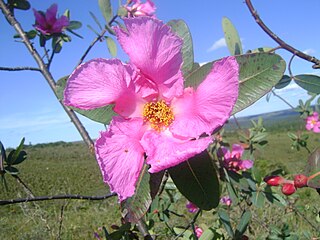
Kielmeyera rubriflora is a species of Kielmeyera from Bolivia to Brazil.
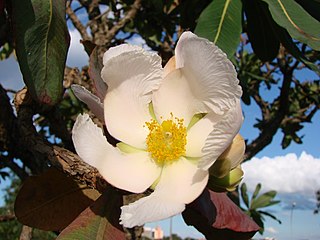
Kielmeyera speciosa is a species of Kielmeyera from Brazil.
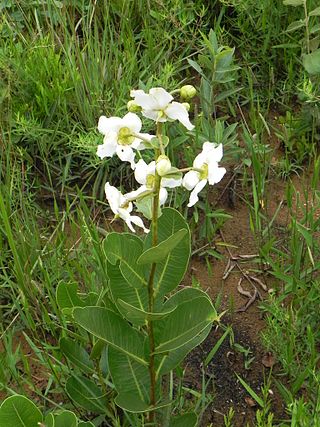
Kielmeyera variabilis is tree growing to a height of 3–6 meters, found in savannah regions of eastern and central Brazil. K. variabilis is traditionally used in folk medicine to treat tropical diseases including schistosomiasis, leishmaniasis, malaria, as well as fungal and bacterial infections.
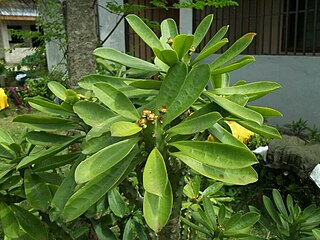
Euphorbia neriifolia is a species of spurge, which was originally described by Carl Linnaeus in 1753.

















